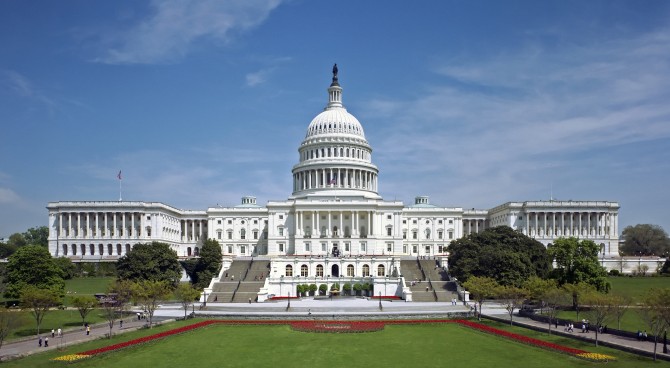Elizabeth Warren and others seek corporate ‘reforms’ that resemble medieval royal charters.
The 18th-century Enlightenment liberated mind, soul and property, empowering people to think their own thoughts, worship their own gods, and benefit from the fruits of their own labor and thrift. As labor and capital came to serve their owners, not the crown, guild, church or village, economies began to awaken from a thousand years of stagnation. The British Parliament stripped away the leaching influence of royal charters and initiated reforms that ultimately allowed businesses to incorporate simply by meeting preset capital requirements. Parliament further established that its laws would govern business—laws created in a process of open deliberation, not by the corrosive influences and rampant cronyism that were pervasive in the medieval marketplace.
Enlightenment philosophers recognized that the crown, guild, church and village sometimes acted as rent-seekers stripping away the rewards for work, thrift and innovation, and in the process inhibiting productive effort and progress. The Enlightenment established the principle that labor and capital are private property and not communal assets subject to involuntary sharing, and thus unleashed the explosion of knowledge and production that drives human flourishing to this day.
Extraordinarily in America, the crown jewel and greatest beneficiary of the Enlightenment, political movements are afoot that seek to overturn the individual economic rights secured in the Enlightenment and return to a medieval world of subjects and subjugation.
Sen. Elizabeth Warren’s Accountable Capitalism Act would harness large American corporations by imposing new federal charters under which businesses would swear medieval fealty to “stakeholders”: “the general public,” “the workforce,” “the community,” “the environment,” and “societal factors.” Ms. Warren would also mandate that employees hold 40% of board seats at very large corporations. In most cases these stakeholders would not have to “stake” any of their toil or treasure, but, as they did in the Dark Ages, they would claim communal rights to share the fruits that flow from the sweat of the worker’s brow, the saver’s thrift and the investor’s venture.
As if to announce step two of the plan, the British Labour Party has now surpassed board-seat meddling and proposes giving employees a 10% ownership stake in major British corporations. And back in the U.S., Sens. Chuck Schumer and Bernie Sanders want to block corporate stock buybacks and possibly halt dividend payments to investors—including retirement funds—unless companies pay additional benefits to workers as well.
Whereas the Enlightenment was based on the principle that people own the fruits of their labor and thrift, “accountable capitalism” and similar proposals to force the sharing of economic rewards return the economy to the medieval concept of communal property. That system allows the powerful few to extort part of the fruits of your labor and capital because, as President Obama would say, if you own a business, “you didn’t build that.”
While this debate will play out in elections over the next decade, a more imminent threat to the Enlightenment’s economic legacy comes from the surreptitious battle being waged in shareholder meetings and corporate boardrooms across America. Political activists are pressuring companies to adopt political, social and environmental policies that would subvert earnings that rightly belong to labor and capital.
Passive funds now manage more than 29% of U.S. stock. Taken together, the three biggest funds constitute the largest shareholder in 40% of public U.S. companies. Their continued growth seems guaranteed, as they gain a tremendous price advantage by simply buying slices of various equity indexes rather than incurring the cost of analyzing each investment.
But such efficiency has a price. An index fund’s profitability is not significantly affected by the performance of any given company in the index, since its competitors sell the same indexes. Therefore index funds and their proxy advisers often have neither the in-depth knowledge nor the aligned interests to make judgments on specific questions that arise in the shareholder meetings of the companies in which they hold an ever-greater share of voting power.
When index funds vote their investors’ shares on broad social and political issues, the problem is not only the lack of aligned interests and knowledge, but that index funds often face glaring conflicts of interest. With high-profile social and political issues, the profitability of the scale-driven index-fund business can be affected by how the public perceives their “social values,” and how that affects the fund’s marketing. That means the index fund’s financial interest in each vote may often conflict with that of its investors.
Jack Bogle, the father of the index fund, urged legislation to impose a fiduciary duty on funds “to vote solely in the interest of the fund’s shareholders.” But even enhanced fiduciary responsibility can’t eliminate index funds’ incentive to treat their marketing interests as a strong factor in the shareholder votes they cast.
On those issues, maybe it is time for the SEC to require index funds to poll their investors and vote their shares only as specifically directed. Without such limits, the economic interests of swelling index funds could convert “private purpose” C corporations into “public benefit” B corporations, and in the process overturn the economic Enlightenment.
History teaches that if we want to be prosperous and free, within the rule of law, we must let private interests create wealth and reap the rewards. Only after wealth has been created should we debate the costs and benefits of redistributing it to our desired social ends.
Mr. Gramm, a former chairman of the Senate Banking Committee, is a visiting scholar at the American Enterprise Institute. Mr. Solon is a partner at US Policy Metrics. This article is adapted from Mr. Gramm’s April 2 testimony before the Banking Committee.
Appeared in the April 16, 2019, print edition.



